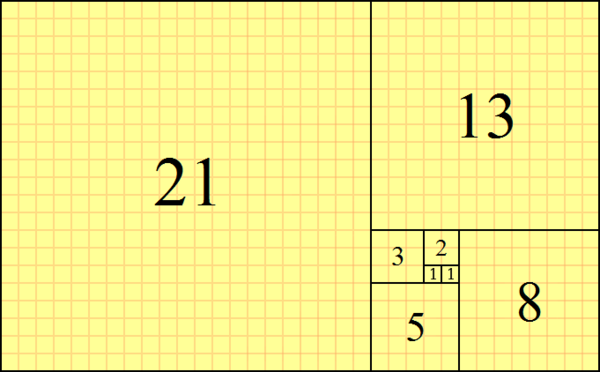In computer science, binary search, also known as half-interval search, logarithmic search, or binary chop, is a search algorithm that finds the position of a target value within a sorted array. Binary search compares the target value to the middle element of the array; if they are unequal, the half in which the target cannot lie is eliminated and the search continues on the remaining half until it is successful. If the search ends with the remaining half being empty, the target is not in the array.
In the Fibonacci sequence of numbers, each number is the sum of the previous two numbers. Fibonacci began the sequence not with 0, 1, 1, 2, as modern mathematicians do but with 1,1, 2, etc. He carried the calculation up to the thirteenth place (fourteenth in modern counting), that is 233, though another manuscript carries it to the next place: 1, 1, 2, 3, 5, 8, 13, 21, 34, 55, 89, 144, 233, 377. Fibonacci did not speak about the golden ratio as the limit of the ratio of consecutive numbers in this sequence.
